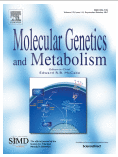 Pompe disease is a lysosomal disorder due to the absence of an enzyme involved in glycogen metabolism. Genetically determined, it is an inherited autosomal recessive disorder and is characterised by myopathy overload and almost always, respiratory failure, amongst other symptoms. Infantile-onset, with a very early onset and poor prognosis (Pompe Disease), can be distinguished from late-onset (Late Onset Pompe Disease or LOPD). An effective enzyme replacement therapy (ERT) has been available since 2006 and has significantly altered the natural history of this disease, especially in children. At the other end of the clinical spectrum (LOPD), the functional benefit is more questionable.
Pompe disease is a lysosomal disorder due to the absence of an enzyme involved in glycogen metabolism. Genetically determined, it is an inherited autosomal recessive disorder and is characterised by myopathy overload and almost always, respiratory failure, amongst other symptoms. Infantile-onset, with a very early onset and poor prognosis (Pompe Disease), can be distinguished from late-onset (Late Onset Pompe Disease or LOPD). An effective enzyme replacement therapy (ERT) has been available since 2006 and has significantly altered the natural history of this disease, especially in children. At the other end of the clinical spectrum (LOPD), the functional benefit is more questionable.
In an article published in September 2017, the French Pompe Study Group, including researchers from the Institute of Myology, reviewed adults with Pompe disease whose enzyme therapy was started at a time when they were all severely affected, both in terms of motor and respiratory functions. Twelve patients fulfilling these criteria (significantly reduced walking distance, demonstrated respiratory insufficiency, etc.) were identified through the French Pompe disease registry. ERT was initiated at a median age of 52 years. With a median follow-up of 55 months, the overall analysis revealed a good tolerance to ERT, and in many patients, a real gain in function. The authors conclude that even at an advanced stage of the disease, and despite the late age of patients, ERT may be useful.
